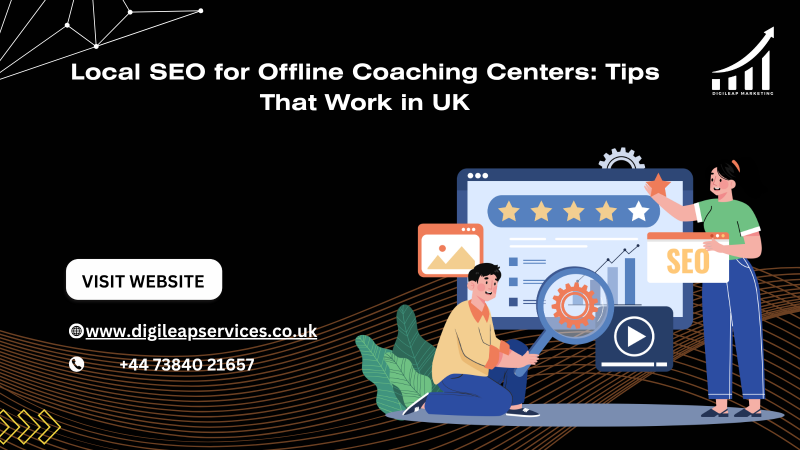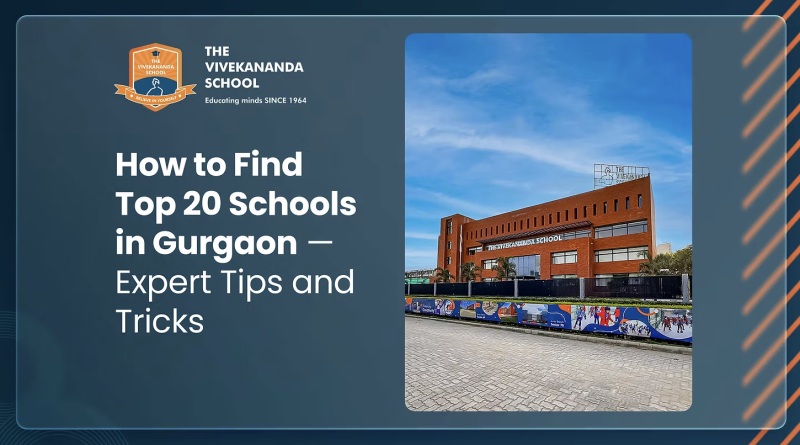Education
Local SEO UK for Offline Coaching Centers: Tips That Work

Running an offline coaching center in the UK today is both exciting and challenging. Students might prefer in-person classes, but their search for the right coaching center almost always begins online. That’s where Local SEO Uk steps in—it’s your ticket to showing up when someone nearby types “maths tutor near me” or “IELTS coaching in London.”
According to BrightLocal’s 2025 survey, over 87% of consumers used Google to find local businesses last year—and education services like coaching institutes were among the top five categories searched.
If you want your institute to be among those top results, you’ll need a strong local SEO strategy—one that fits the UK market. So, let’s break it down step-by-step.
You can also explore tailored digital marketing assistance from a leading digital marketing agency in Uk that helps education brands grow online and offline.
Why Local SEO UK Matters for Coaching Centers
Local SEO isn’t just another digital buzzword. It’s a game-changer for small and medium coaching centres that depend on nearby students. With so many institutes competing in the same area, being visible in Google’s Local Pack — that map section with nearby options — can make all the difference.
When done right, local SEO can:
- Increase your walk-in enquiries
- Build credibility through local reviews
- Help parents and students trust your brand faster
Simply put, local SEO connects your institute with students who are actively searching for coaching services in your neighbourhood.
Optimize Your Google Business Profile
One of the most powerful steps in local SEO is setting up and optimizing your Google Business Profile (GBP) — earlier known as Google My Business.
Here’s what you should do:
- Claim and verify your profile: Visit Google Maps, find your business, and claim it.
- Add accurate details: Include your full name, address, phone number, working hours, and website link.
- Add photos: Upload real pictures of classrooms, teachers, and facilities.
- Use keywords smartly: Add relevant ones like “IELTS coaching in Manchester” or “Maths tuition centre in Birmingham.”
- Encourage reviews: Positive reviews boost trust and improve your local ranking.
Remember, Google prioritizes verified and well-maintained listings. So, update your profile regularly, especially during holidays or schedule changes.
1. Use Location-Based Keywords for Local SEO UK
Your students won’t just search for “English coaching.” They’ll search for “English coaching near Oxford” or “spoken English classes in London.”
That’s why you need to add geo-specific keywords across your website and content. For instance:
- “IELTS classes in Manchester”
- “GCSE maths tuition near Leeds”
- “Coaching institute in Birmingham”
Add these phrases in your website’s title tags, meta descriptions, blog posts, and even in image alt texts. This helps Google understand where you operate and whom to show your website to.
2. Get Listed on Local Directories for Local SEO UK
Another easy win for local SEO is local business directories. Sites like Yell, Scoot, and Thomson Local are popular in the UK and often appear on the first page of Google results.
Make sure your Name, Address, and Phone Number (NAP) are consistent across all directories. Even a small difference—like writing “Rd.” on one site and “Road” on another—can confuse search engines.
It’s also smart to add your business to education-specific platforms like Classhub or Tutorful if applicable.
3. Collect Student Reviews and Testimonials
Let’s be honest — people trust people. If someone sees glowing reviews from other parents or students, they’re far more likely to choose your coaching centre.
Ask your students or their parents to leave a quick review on Google or Facebook after a positive experience. Don’t offer rewards; just make the process easy with a friendly message and a direct link.
Responding to reviews (both good and bad) also shows you care about feedback — something Google appreciates too.
4. Create Local Content
This is a big one. When you write local blogs or posts that target your nearby audience, Google takes notice.
You could write about:
- Upcoming local exams or results
- Student success stories in your city
- Study tips for popular UK tests (like GCSE or A-Levels)
- News about local education fairs or open days
Local content helps search engines link your website with specific regions — boosting your visibility in those areas.
5. Optimize for Mobile Users
Most parents and students will search for coaching centres on their phones. So, if your website takes too long to load or looks weird on mobile, you’ll lose them.
Ensure your site is:
- Mobile-friendly: Texts and buttons should be readable and clickable.
- Fast-loading: Compress images and remove unnecessary pop-ups.
- Easy to navigate: Make contact info and maps clearly visible.
- Google also gives mobile-optimized sites better rankings — so this step helps with both user experience and SEO
6. Build Local Backlinks
When a trusted website links to your page, it signals Google that you’re credible. Try getting backlinks from:
- Local schools or universities (if you collaborate)
- Community blogs or news outlets
- Local education events or charity pages
- You can also publish guest articles or sponsor local education drives to earn organic backlinks.
7. Use Social Media for Local Engagement
Social signals may not directly impact SEO, but they help your brand stay visible and trusted.
- Post photos of your classes, celebrate student achievements, or share exam tips. Tag your location and use hashtags like # LondonTutors or #ManchesterCoaching to connect with your local audience.
- Platforms like Facebook and Instagram are great for this — especially if you run short, engaging video posts.
- Local SEO isn’t a “set and forget” thing. Use Google Analytics and Google Search Console to track which keywords and areas bring you the most traffic.
You can then double down on what works — maybe it’s your “maths coaching in Leeds” page or a blog about “IELTS success stories.”
Conclusion
Building visibility for your offline coaching center in the UK doesn’t require massive budgets—just smart, consistent local SEO work. From optimizing your Google profile to writing city-based blogs, every little step adds up.
When your name starts showing up at the top of search results, students begin to trust your brand — even before visiting your centre. And that’s how local SEO turns online searches into real, in-person admissions.
If you’re short on time or need expert help, reach out to Digileap UK — they specialize in helping coaching institutes attract more students using smart digital and local SEO strategies.
TL;DR
Local SEO helps offline coaching centres in the UK attract nearby students through Google visibility.
- Optimize your Google Business Profile
- Use city-based keywords
- Get listed on local directories
- Collect and respond to reviews
- Post locally relevant content
- Make your site mobile-friendly
- Earn local backlinks
Do this consistently — and watch your coaching center become the go-to choice in your area.
🚀 Want to see your coaching center appear in more local searches? Partner with Digileap UK
Today and grow your offline presence through powerful, affordable SEO strategies!
Source:
Click for the: Full Story
You might like













 Close Menu
Close Menu